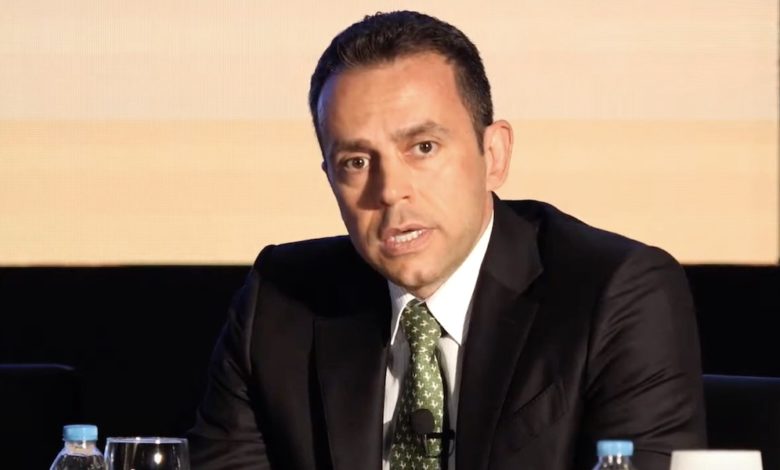Goldenport: When to invest and divest

In recent weeks John Dragnis celebrated his 10th anniversary as CEO at his family’s famous shipping firm, Goldenport Holdings, a dry bulk and containership company he has been working at since 2001. Dragnis also co-founded Oceangold Tankers in 2007, a product and chemical tanker specialist.
With such a wide fleet purview, Dragnis is well versed in how best to navigate the ebbs and flows of individual shipping markets. At the Ship2Ocean Shipping Finance conference held in Athens last month, Dragnis was quizzed on when best to enter and exit shipping segments to which he gave delegates a masterclass in shipping.
“We are in a high inflationary environment and obviously this helps – it is good to own hard assets today because it helps protect investments,” Dragnis told delegates attending the conference.
With regards to the value of assets – whether to divest or invest – and how to place yourself within the shipping sector, each sector has its own dynamics, Dragnis stressed.
Shipping is shipping – it is not a bank bond, there are risks
Generally, he said, because of the inflationary environment, the increasing costs, the very low shipyard capacity to construct and build new ships all point towards rising values of most ship types already trading around the world.
“In China,” Dragnis relayed, “it is not so easy to place newbuilding orders. The orderbook is filled up with container vessels, so again that gives more value to the fleet at sea.”
Looking at the tanker sector, Dragnis said that for more than a year rates have been at near zero in TCE terms, however because of the very high liquidity that exists in the general shipping environment values held up very well irrespective of the category of ship, whether it was younger ships, middle-aged ships or older ships.
“They were all very liquid assets and they could very easily be sold even though the market was very subdued,” Dragnis said of the topsy-turvy tanker sector.
Where the Greek would sink more cash is into younger, more eco ships, aware of rising fuel bills.
“Generally I think the value on younger ships is well justified,” Dragnis said. “With bunker prices so high the eco ships delta will continue opening vis-a-vis the non-eco ships because of the bunker cost and I think that the prices are justified.”
Dragnis said that there will come a point where taking some profit off the table could be a good choice, like for example in the container sector, selling out on a 20-year-old vessel that is non-eco that was acquired at a low number and can log in a hefty profit today.
However, before readers pile in and think shipping is a licence to print money, Dragnis concluded with some cautionary remarks.
“Shipping is shipping – it is not a bank bond, there are risks: credit risks; counterparts risks; and time charter risks,” he said.
This profile first appeared in the latsest issue of Maritime CEO magazine. Splash readers can access the full magazine for free by clicking here.

